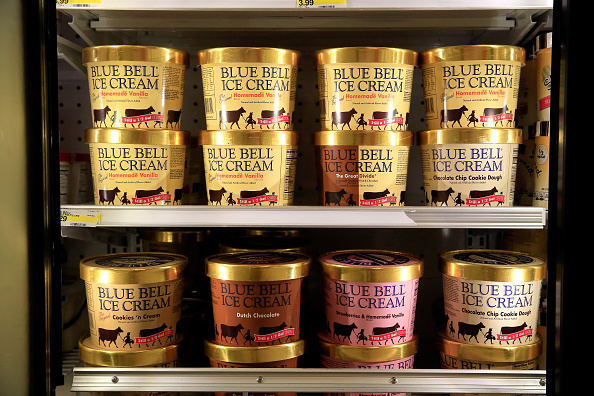
Food recalls due to listeria are not unusual and can usually be traced to a source of listeria contamination that affects one processing plant or factory. The national recalls of all products made by Blue Bell Creameries of Texas and Jeni's Splendid Ice Cream of Ohio are not following that pattern. Health officials and the companies involved are left pondering how the bacteria has contaminated several manufacturing plants at the same time.
Another mystery is that the potentially deadly listeria bacteria is rarely found in ice cream because, although it can grow in refrigerated food, it cannot grow in frozen food.
At the moment, there is no known link between the finding of listeria in one sample of Jeni's ice cream and the Blue Bell manufacturing plants.
Ten people have been sickened from eating Blue Bell products and three have died. No one is known to have become ill from eating Jeni's ice cream.
Jeni's has recalled all its products and has closed its retail stores. Blue Bell has closed its facilities in Texas, Oklahoma, and Alabama for intensive cleaning. The company has produced some ice cream at other plants, but that will be used for testing and will not be sold.
Outbreaks of listeria are more commonly linked to processed meats and unpasteurized dairy products. Listeria can be very hard to eradicate from a food processing facility once the plant has become contaminated.
Listeria is found in soil and water and can be carried by animals. Unlike most bacteria, it can grow in cold temperatures, which means that it can grow in refrigerated foods that have been contaminated. The disease caused by listeria is called listeriosis, which can kill in as many as 20% of all cases. Most deaths occur in the elderly or in people with compromised immune systems. However, listeriosis can be fatal in pregnant women, and can cause miscarriages, premature births, and make newborns seriously ill. Most healthy children or young adults who become infected have few problems.
